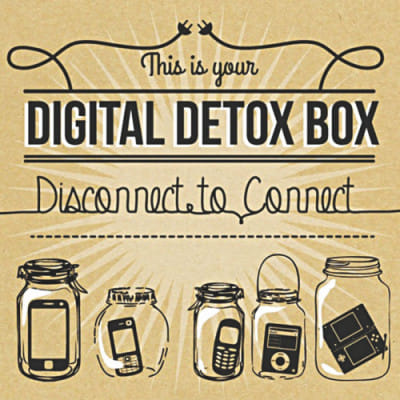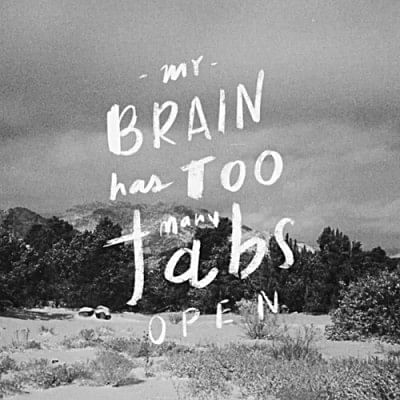Going off the grid

WHY QUIT THE SCREEN?
A healthy amount of screen time has never been the root of trouble, but here in 2019, we seem to have surpassed the healthy limit by a lot. So it does not matter if you are staring at a screen for work or leisure, the harm done is equal.
Your brain needs to rest
The concept of rest is long gone, because Instagram and YouTube have replaced nap times. The problem here is that you are never truly rested while staring at a screen. Instead, it tires you out further, if not instantly, then over a few hours.
Chronic headaches and neck pain
Continuously looking down on your phone and staring at a screen can give you major headaches that start from the eyes, and branch out until you eventually feel nauseous. Side effects also include neck pain from a constant uncomfortable position, which spreads to the shoulders and lower back as well.
Shortens your attention span
Notifications have made it easy to notice changes almost instantly, but it has also reduced our attention span because we look for the same speed in our other daily activities as well. Eventually, we forget what it is like to wait and our anxiousness gets the better of us.
Age early
If you have not noticed already, the more you stare at a glowing screen, the more you start to squint. And in no time, you will be able to see and feel crow's feet starting to occur around the eyes, even if you are just 20 years old.
It's depressing
We are not saying that we are not happy with someone's success, but constantly being reminded of others' success in numerous aspects of life through social media posts does have a tendency to depress people. You do not have be jealous or angry, but deep down, it can get to you and demotivate you. What you see on social media is not always the full picture, but when you see posts being flooded with 'congratulations', the other side sort of hides away, exposing you to only what brings your down.

HOW DO YOU DETOX?
Now that we have a handful of the numerous reasons to digitally detox, you have to know how to do it properly without going paranoid.
Let people know
First step to unplugging involves letting people know you will be off the grid. In today's technologically connected world, not finding you online might lead to a search team at your doorstep if you vanish all of a sudden. The easiest way to reach your entire audience; a post of course. Elaborate on why and how you wish to detox, and that you will be available in selected times. This way, you get your space without causing a ruckus.
Sleep apart from your phone
Before going to bed, keep your phone in a different room. If it makes you too anxious as a beginner, at least keep it far from hand's reach, like on a faraway table. This way, you will not habitually turn to it when you cannot fall asleep. On top of that, it is always best to keep blue light away before bed, because the small but powerful screen actually worsens your sleep patterns.
Create time slots
Make a nice table, outlining when you check Messenger, e-mail, Instagram, Twitter and so on. Have an hour of social media to yourself in the evening, when you get to check all your messages and get back on your correspondence. Create a few time slots and slowly reduce them, so you do not feel deprived at first. This is more efficient, and better for your mental health because you are not constantly checking for notifications and trying to get back, which can be hectic for your brain. Make sure the time slots are not too close to your bed time though.
Go manual
Get a journal or notepad to keep it in your bag with a pen. When you need to note something down, physically write it instead of taking it down on your phone. Get sticky notes for reminders and an alarm clock for your morning alarm, read a real book instead of the electronic alternative. Try to replace the things you would normally be doing with your phone with analogue objects. It is a matter of habit, and when done every day, you will forget about your phone's features in no time.

Get a watch
The thing we pick up our phone for most is checking the time. And after we see what time it is, we somehow end up on YouTube or Instagram and find an hour has passed. Get a watch so you do not have to open your phone in the first place, and save yourself from the series of events that lead to spending hours on your phone yet again.
Use a real camera
Make no mistake, having a good camera phone is great for getting pictures of those fast fleeting moments. But the fact that it lets us click a hundred photos in a matter of minutes makes us underappreciate the moments we capture. Switch to a real camera, like the good old days and take a few, but good pictures and print them out. When you put in the effort, you start to notice things about your photo you would otherwise have not with a phone.
Pick up a Hobby
You turn to your phone when you are bored, or when you are tired from work. So if you get a hobby, you will be both busy and happy, meaning less time for your phone. Whatever it may be, baking, music, or art, try out new things, and in no time, your social media addiction will be left in the rear view.
Sleep
As you grow up, you, along with the rest of us, want one thing, which is peaceful sleep. If you accumulate all the minutes you spend on your screen, and take a good nap instead, it will be better for your mind, body, and health, not to mention improving your productivity. So if you cannot seem to find anything else to replace your screen time with, just sleep. It is precious, healthy and freshens your mind.
For someone who is constantly on a device exposed to a blue screen, a sudden separation from it can result in withdrawal symptoms and anxiety. If you feel similarly, then take it slow. Reduce your time every day until you feel like you can let go completely. In the beginning, it might feel different, and you might feel cut off, but it will pass with time, until the analogue life becomes the norm again.
Photo: Collected

 For all latest news, follow The Daily Star's Google News channel.
For all latest news, follow The Daily Star's Google News channel. 



Comments